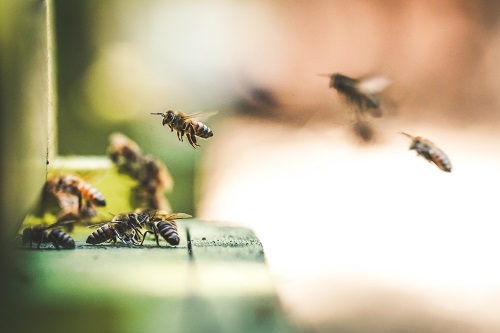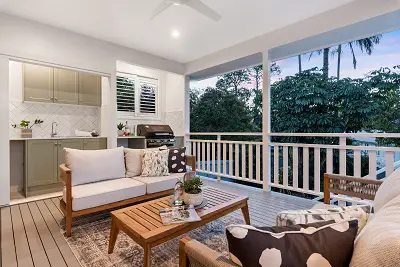Inexpensive Plants to Create Your Own Zen Environment
Zen gardens are the thing these days, as people are looking for a place to revive the peace and serenity in their lives. A healthier outlet is always needed to sit and clear up your thoughts, a place where you can unwind and relax.
Zen gardens were originated by monks in Japan to meditate. These gardens have four essential elements. They usually comprise gravel, sand, and rocks but there is no rule of not adding plants and water to them. However, before adding them to your garden, make sure the plants you choose should be blending well and create harmony with the whole look. You don’t want just any greens but the ones that will add to the serenity and serve the purpose.
Now that you have decided that you want this chunk of heaven at your place, it’s time to analyze a few things. Budget, being the most important, is followed by the dimensions of your selected landscape. When we talk about budget, we mean collecting inexpensive but meaningful bits and pieces for your garden and that also includes the plants that you add to it.
If you are a minimalist and want to bring tranquility and peace to your space, read this guide to make your home perfectly Zen.
Read on for an extensive review of the ideal plants that will thrive well in your region, creating a tranquil atmosphere and yet not costing you an arm and leg!
1. Japanese Maple
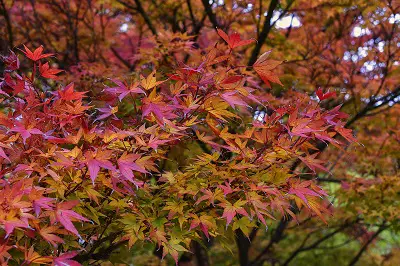
One perfect plant for your Zen garden that tops our list is the Japanese maple. This plant adds that perfect red contrasting color to your earthy Zen Garden. The elegant tree with its colorful foliage can also be found in dwarf sizes that can be small enough to grow in pots and even as bonsai, which can be a perfect addition to your Zen. Crimson Queen Japanese Maple and Red Dragon Japanese Maple are perfect dwarf varieties.
Japanese maple requires full sun but needs protection from the summer heat. We suggest protecting it from the cold winds as well.
2. Bamboo
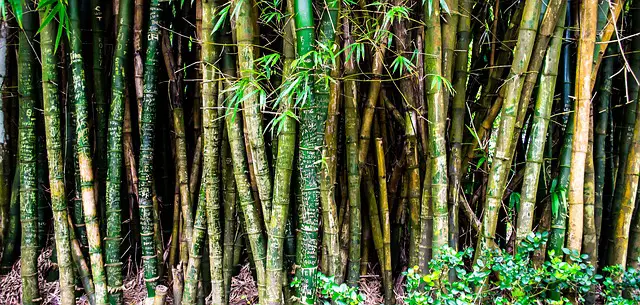
When you think of Japanese Zen gardens, the first thing that comes to your mind is the tall bamboo with their beautiful foliage found in clusters or acting as screens. These come in a variety of sizes and colors. Giant bamboo, colorful bamboo, and shrub bamboo are just to name a few. Japanese timber bamboo is native to China and Japan and can thrive well in almost all kinds of climates. They can reach a height of 40 to 60 feet high. The only hitch; their roots can be quite invasive. But the best thing about bamboos is that they are great for purifying the air and absorbing harmful toxins from the air. So what more could you ask from a plant so aesthetically pleasing and good for your health as well.
Get the optimum results with this guide on how to take care of lucky bamboo.
3. Pine Tree
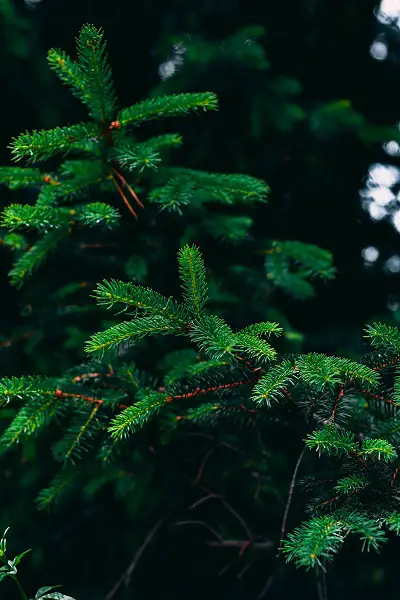
It is a wonderful idea to add a pine tree to the list of greens in your Zen garden as they are evergreen and their needle-like foliage bloom for at least two years. Very adaptable and beautifully fragrant, pine trees have an aura of their own. When we say adaptable, we mean that we can limit its size so it can fit your demands. A technique called candling is used to keep it compact.
Japanese black pine trees are particularly good for Zen gardens because they are liberal to sandy soils. These pines have thick, irregular deep green needles and a contrasting dark grey trunk.
4. Hinoki Cypress
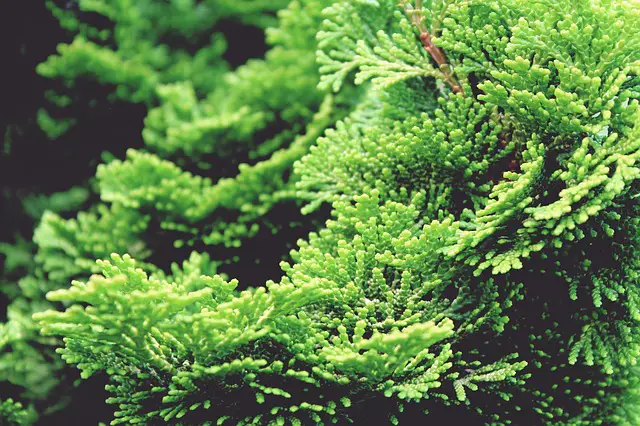
With its fan-like branches that give layers to the tree, Hinoki Cypress is an elegant conifer that is native to Japan. These are accessible in many dwarf cultivars which add more zing to the Zen gardens. Hinoki Cypress has a pyramidal shape and can be grown in large containers as well. Plant them at a spot where they can bask in the sun for at least 6 hours. While your Japanese maple turns a gorgeous fiery red in fall, these will give you remarkable bronzed leaves in the same season. The golden Hinoki cypress has beautifully spreading branches that have golden-y foliage.
5. Camellias
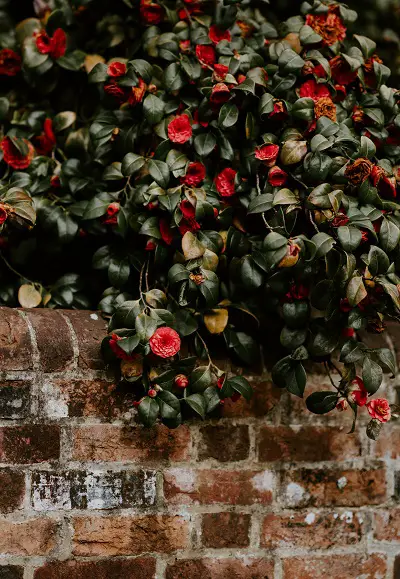
Camellias are known to be typical Zen garden shrubs. Highly valued for their ornamental, gorgeous blooms, Camellias can bring the perfect tranquil vibe your garden needs. They symbolize love and affection. These are evergreen flowering shrubs that are native to the Himalayas, Japan, and Indonesia. They grow best in full sun but protect them from the harsh afternoon sun. This plant can be pruned to keep it to the desired height. Unfortunately, you won’t be able to grow camellias if you live in a climatically warmer region.
Want to add color to your home? Here’s a list of seven plants with pink flowers you should add to your garden.
6. Cherry Trees
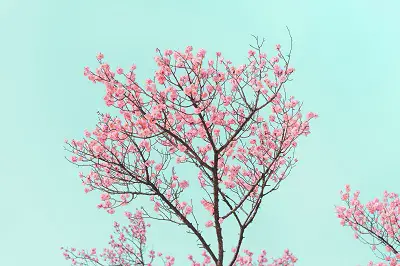
Since all the elements of the Zen garden should be balanced, the cherry tree makes a perfect green that can be added to maintain that balance. For us, no Zen garden is complete without the presence of the cherry tree. You can plant the dwarf one which can size up to 8 feet tall or if you have a bigger space, you can go for the wild variety that reaches the height of 80 feet tall. But dwarf-sized plants are preferable for Zen gardens. Flowering cherry trees are a delightful presence in the garden with their white and pink serene blooms. Just don’t plant them where they don’t get 8 hours of direct sunlight.
7. Moss
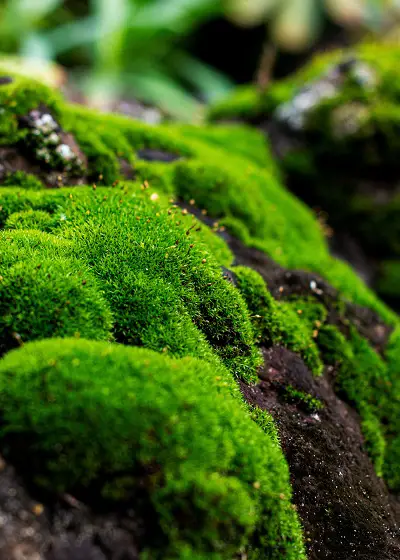
Grow lots of moss. Grow it between pathways, under the rocks, or around the statues. Moss will complete the look of your garden. It will also help you synchronize all the elements well while giving your garden a fresh and very lush ambiance. Simply add texture by planting moss between spaces to get a fuller look. If you live in a humid area, you won’t have to do much effort to grow moss. It will automatically start growing in tiny spaces where moisture tends to accumulate. It also prefers acidic soil to grow. Hot afternoon heat will turn it brown and completely dry so take necessary precautions.
It’s time to plan your garden. Don’t forget to add the essential elements but with harmony and for that, we suggest getting down to drawing your plan first. Indulge in a small bridge if you have a bigger space or add goldfish to the small pond that you plan on having in your garden.

